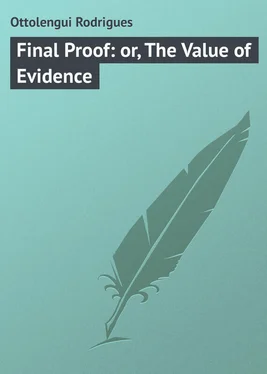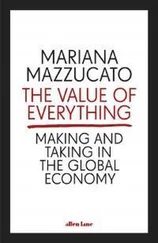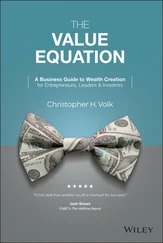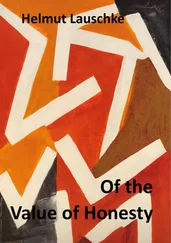Rodrigues Ottolengui - Final Proof - or, The Value of Evidence
Здесь есть возможность читать онлайн «Rodrigues Ottolengui - Final Proof - or, The Value of Evidence» — ознакомительный отрывок электронной книги совершенно бесплатно, а после прочтения отрывка купить полную версию. В некоторых случаях можно слушать аудио, скачать через торрент в формате fb2 и присутствует краткое содержание. Жанр: foreign_prose, на английском языке. Описание произведения, (предисловие) а так же отзывы посетителей доступны на портале библиотеки ЛибКат.
- Название:Final Proof: or, The Value of Evidence
- Автор:
- Жанр:
- Год:неизвестен
- ISBN:нет данных
- Рейтинг книги:3 / 5. Голосов: 1
-
Избранное:Добавить в избранное
- Отзывы:
-
Ваша оценка:
- 60
- 1
- 2
- 3
- 4
- 5
Final Proof: or, The Value of Evidence: краткое содержание, описание и аннотация
Предлагаем к чтению аннотацию, описание, краткое содержание или предисловие (зависит от того, что написал сам автор книги «Final Proof: or, The Value of Evidence»). Если вы не нашли необходимую информацию о книге — напишите в комментариях, мы постараемся отыскать её.
Final Proof: or, The Value of Evidence — читать онлайн ознакомительный отрывок
Ниже представлен текст книги, разбитый по страницам. Система сохранения места последней прочитанной страницы, позволяет с удобством читать онлайн бесплатно книгу «Final Proof: or, The Value of Evidence», без необходимости каждый раз заново искать на чём Вы остановились. Поставьте закладку, и сможете в любой момент перейти на страницу, на которой закончили чтение.
Интервал:
Закладка:
"That, you say, was the night after this affair was published in the papers?"
"No; it was the same night."
"That is to say, the night of that day on which I came here and had a talk with you?"
"No, it was the night before. You're thinkin' about the mornin' papers, but I seen it first in the afternoon papers."
This statement dispelled a doubt which had entered the mind of the detective, who remembered that Mr. Burrows had told him that the pawn-ticket incident had occurred on the evening previous to their meeting. This explanation, however, tallied with that, and Mr. Barnes was now inclined to credit the man's story.
"Very good," said he. "You may be telling the truth. If you have nothing to do with this case, you ought to be willing to give me some assistance. Will you?"
Randal had been so thoroughly frightened that he now seemed only too glad of the chance to win favor in the eyes of Mr. Barnes.
"Just you tell me what you want, and I'm your man," said he.
"I want to find out something at the stable, and I think you can get the information for me better than I can myself."
"I'll go with you right away. The boy can mind the shop while we're gone. Charlie, you just keep an eye on things till I get back, will you? I won't be out more'n ten minutes. Come on, Mr. Barnes, I'm with you."
On the way to the stable Mr. Barnes directed Randal as to what he wished to learn, and then at his suggestion waited for him in a liquor saloon near by, while he went alone to the stable. In less than ten minutes Randal hurried into the place, flushed with excitement and evidently bubbling over with importance. He drew the detective to one side and spoke in whispers.
"Say," said he, "you're on the right tack. The wagon was out again that night, and not on any proper errand, neither."
"Tell me what you have learned," said Mr. Barnes.
"Of course the night watchman ain't there now, but Jimmy, the day superintendent, is there, and I talked with him. He says there was some funny business that night. First I asked him about the wagon bein' out or not, and he slaps his hand on his leg, and he says: 'By George!' says he, 'that's the caper. Didn't you put that wagon in its right place when you brung it in that afternoon?' he says to me. 'Of course,' says I; 'where do you think I'd put it?' 'Well,' says he, 'next mornin' it was out in the middle of the floor, right in the way of everything. The boys was cussin' you for your carelessness. I wasn't sure in my own mind or I would have spoke; but I thought I seen you shove that wagon in its right place.' 'So I did,' says I, 'and if it was in the middle of the stable, you can bet it was moved after I left. Now who moved it?' 'I don't know,' says he, 'but I'll tell you another thing what struck me as odd. I didn't have nothin' particular to do that night, and I dropped in for an hour or so to be sociable like with Jack' – that's the night watchman. 'While I was there,' he goes on, 'while I was there, who should come in but Jerry Morgan! He didn't stop long, but he took us over to the saloon and balled us off' – that means he treated to drinks. 'Next day I come round about six o'clock as usual,' says Jimmy, goin' on, 'and there was Jack fast asleep. Now that's the fust time that man ever dropped off while on watch, and he's been here nigh on to five years. I shook him and tried every way to 'waken him, but it didn't seem to do no good. He'd kind of start up and look about dazed, and even talk a bit, but as soon as I'd let up, he'd drop off again. I was makin' me a cup of coffee, and, thinkin' it might rouse him, I made him drink some, and, do you know, he was all right in a few minutes. At the time I didn't think much about it, but since then I have thought it over a good deal, and, do you know what I think now?' 'No,' says I; 'what do you think?' 'I think,' says he, 'I think that Jimmy was drugged, and if he was, Jerry Morgan done the trick when he balled us off, and you can bet it was him took that wagon out that night.' That's the story Jimmy tells, Mr. Barnes, and it's a corker, ain't it?"
"It certainly is important," said Mr. Barnes.
Once more he had food for thought. This narrative was indeed important; the drowsiness of the watchman and his recovery after drinking coffee suggested morphine. The detective likewise recalled the story of the butler who claimed that he had seen Mark Quadrant asleep while he was supposed to be guarding the coffin. Then, too, there was the empty paper which had once held some powder, and which he had himself found in the room where Mark Quadrant had slept. Had he too been drugged? If so, the question arose, Did this man Morgan contrive to mix the morphine with something which he thought it probable that the one sitting up with the corpse would drink, or had Amos given his brother the sleeping-potion? In one case it would follow that Morgan was the principal in this affair, while in the other he was merely an accomplice. If his hand alone managed all, then it might be that he had a deeper and more potent motive than the mere removal of the body to avoid cremation, the latter being a motive which the detective had throughout hesitated to adopt because it seemed so weak. If Morgan substituted another body for the one taken from the coffin, then the statement of Mr. Mitchel that a body had been cremated was no longer a discrepancy. There was but one slightly disturbing thought. All the theorizing in which he now indulged was based on the assumption that Randal was not deceiving. Yet how could he be sure of that? Tom Burrows would have said to him: "Mr. Barnes, that fellow is lying to you. His story may be true in all except that it was himself and not Morgan who did these things." For while he had thought it best to let Randal go alone to the stable to make inquiries, this had placed him in the position of receiving the tale at second-hand, so that Randal might have colored it to suit himself. For the present, he put aside these doubts and decided to pursue this clue until he proved it a true or false scent. He dismissed Randal with an injunction to keep his tongue from wagging, and proceeded to the house of the man Morgan, regretting now that he had not done so before.
The tenement on Eleventh Avenue was one of those buildings occupying half a block, having stores on the street, with narrow, dark, dismal hallways, the staircases at the farther end being invisible from the street door, even on the sunniest days, without a match. Overhead, each hallway offered access to four flats, two front and two back, the doors being side by side. These apartments each included two or three rooms and what by courtesy might be called a bathroom, though few indeed of the tenants utilized the latter for the purpose for which it had been constructed, preferring to occupy this extra space with such of their impedimenta as might not be in constant use.
When one enters a place of this character asking questions, if he addresses any of the adults he is likely to receive scant information in reply. Either these people do not know even the names of their next-door neighbors, or else, knowing, they are unwilling to take the trouble to impart the knowledge. The children, however, and they are as numerous as grasshoppers in a hayfield, not only know everything, but tell what they know willingly. It is also a noteworthy fact that amidst such squalor and filth, with dirty face and bare legs, it is not uncommon to find a child, especially a girl, who will give answers, not only with extreme show of genuine intelligence, but, as well, with a deferential though dignified courtesy which would grace the reception-rooms of upper Fifth Avenue.
It was from such an urchin, a girl of about twelve, that Mr. Barnes learned that Jerry Morgan had lived on the fifth floor back.
"But he's gone away, I guess," she added.
"Why do you think so?" asked Mr. Barnes.
Читать дальшеИнтервал:
Закладка:
Похожие книги на «Final Proof: or, The Value of Evidence»
Представляем Вашему вниманию похожие книги на «Final Proof: or, The Value of Evidence» списком для выбора. Мы отобрали схожую по названию и смыслу литературу в надежде предоставить читателям больше вариантов отыскать новые, интересные, ещё непрочитанные произведения.
Обсуждение, отзывы о книге «Final Proof: or, The Value of Evidence» и просто собственные мнения читателей. Оставьте ваши комментарии, напишите, что Вы думаете о произведении, его смысле или главных героях. Укажите что конкретно понравилось, а что нет, и почему Вы так считаете.












